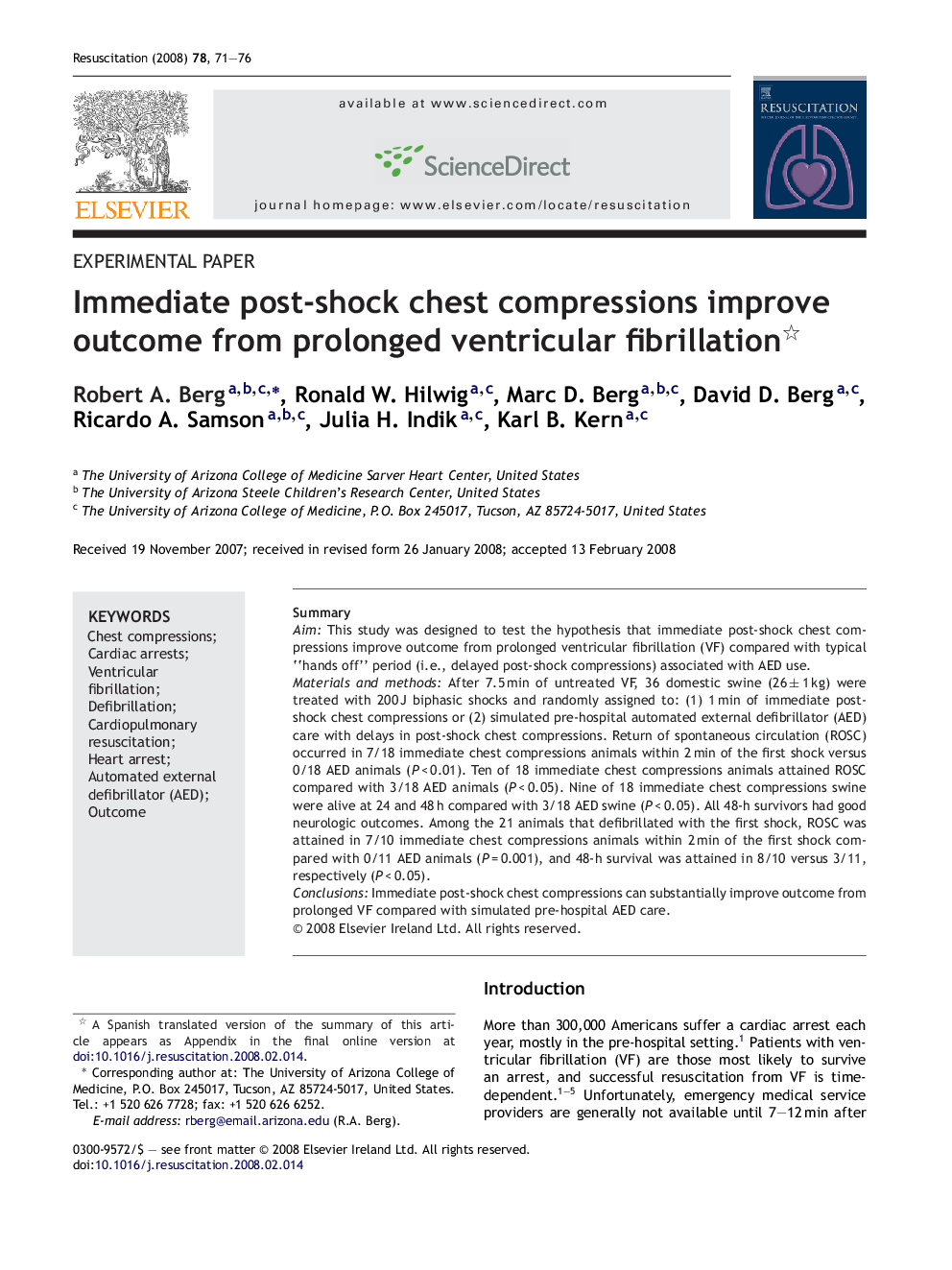| Article ID | Journal | Published Year | Pages | File Type |
|---|---|---|---|---|
| 3009926 | Resuscitation | 2008 | 6 Pages |
SummaryAimThis study was designed to test the hypothesis that immediate post-shock chest compressions improve outcome from prolonged ventricular fibrillation (VF) compared with typical “hands off” period (i.e., delayed post-shock compressions) associated with AED use.Materials and methodsAfter 7.5 min of untreated VF, 36 domestic swine (26 ± 1 kg) were treated with 200 J biphasic shocks and randomly assigned to: (1) 1 min of immediate post-shock chest compressions or (2) simulated pre-hospital automated external defibrillator (AED) care with delays in post-shock chest compressions. Return of spontaneous circulation (ROSC) occurred in 7/18 immediate chest compressions animals within 2 min of the first shock versus 0/18 AED animals (P < 0.01). Ten of 18 immediate chest compressions animals attained ROSC compared with 3/18 AED animals (P < 0.05). Nine of 18 immediate chest compressions swine were alive at 24 and 48 h compared with 3/18 AED swine (P < 0.05). All 48-h survivors had good neurologic outcomes. Among the 21 animals that defibrillated with the first shock, ROSC was attained in 7/10 immediate chest compressions animals within 2 min of the first shock compared with 0/11 AED animals (P = 0.001), and 48-h survival was attained in 8/10 versus 3/11, respectively (P < 0.05).ConclusionsImmediate post-shock chest compressions can substantially improve outcome from prolonged VF compared with simulated pre-hospital AED care.
